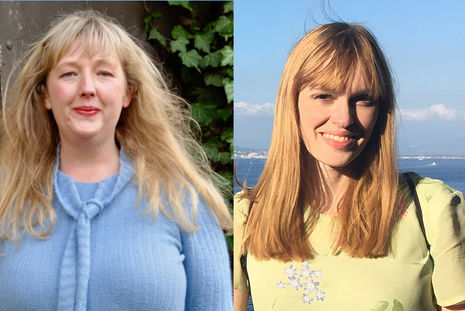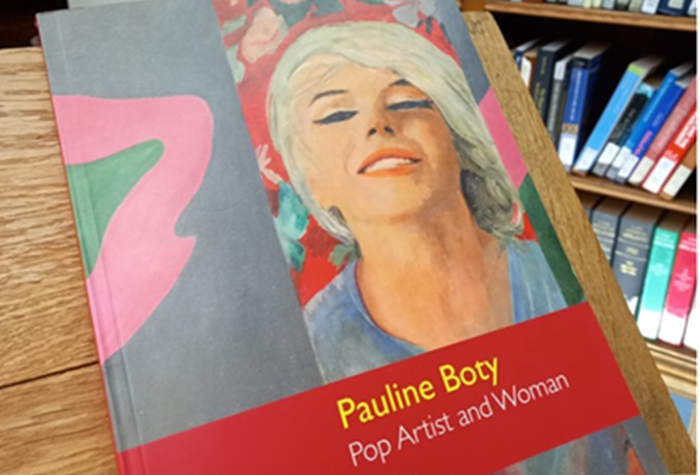‘You can look at the classical world differently’
Authors Jennifer Saint and Elodie Harper discuss the need to challenge male-centric narratives from antiquity

The first rule for all good bookish folk is to never judge a book by its cover. Not so now. Jennifer Saint’s most recent book Elektra and Elodie Harper’s The House with the Golden Door, are both bound richly, ornately and beautifully, like the vases Saint’s mythical women were often depicted on. In these contemporary retellings though, these women do not remain as distant, static and mute figures, but instead take up their own voices, and attempt to reclaim their agency, as fully formed, and flawed, individuals, rather than just one dimensional caricatures. They are placed at the heart of the narrative, not nudged aside to obediently weave, weep or act as some form of sexual distraction to the men that surround them.
This movement of feminist retellings has been taking shape for a while. Titles such as Madeline Miller’s wildly successful Circe (2018), which Harper adored for its “humour, and the way her point of view is quite puncturing of the pomposity of the gods and men in the story” and Pat Barker’s The Silence of the Girls (2018), are just two of the “juggernaut” books which have pushed potentially dusty and inaccessible writing into the mainstream.f
As ever, Margaret Atwood, in publishing The Penelopiad in 2005 “was always very prophetic” in “being a frontrunner”, Saint notes. The #MeToo movement has been a catalyst in bringing these narratives of belittlement, harassment or exclusion under the microscope. Harper views it as “a cultural awareness that has been growing over time of how women’s perspectives on things have been sidelined…and wanting to reclaim that in multiple areas.”
Classics as a discipline can often seem an impenetrable fortress bound up in class, elitism and whiteness, and as Harper claims, can be used to reinforce prejudice. In the periods following the original writing of ancient texts, a disservice has been done to the way women and non-elite characters have been viewed; each period piling their own biases and preconceptions onto the ways women are maligned. The issue with these texts, which both authors have studied, was that they “always seem really male-dominated.”
“I started to understand that you could look at the classical world differently”
“It was much later”, Harper says, “that I started to understand that you could look at the classical world differently.” Academia has only recently gained an interest in the broader narratives surrounding non-elites – Harper claims Robert Knapp’s Invisible Romans (2011) does just that. Her trilogy, of which only the first two books have been published, focuses on a band of women who undertake traumatising and degrading sex work, and tackles this with the dignity they deserve.
Sadly, but unsurprisingly, misogyny in response to the real-life women who inspired these books pervades to this day. Harper describes that sometimes even when modern tour guides take groups through the brothel area in Pompeii, the women of the Lupanar (literal ‘the wolf den’) are still objectified, with some reactions feeling “like, ‘ooh I’m in the brothel’. It’s not really thinking about what their lives were like.”
“She drops off the pages, she disappears from the story, Theseus goes and gets all the fame and the glory”
Saint recalls that a source of inspiration for her novel was being asked by one of her children, ever eager to have a satisfying conclusion to a story, about what happened to Ariadne after the episode with the Minotaur. “Because she drops off the pages, she disappears from the story, Theseus goes and gets all the fame and the glory and all the accolade.” When Saint felt more interesting stories to be told through interrogating the female perspective, she reconstructed her own. The myth of Elektra is discussed by all three major tragedians, and so “you do have the major outline of the story, but there is so much that is missing, and so many gaps in these women’s lives…so that gives you the opportunity for creativity and invention.” Undoubtedly, it also gives rise to a far richer, emotive and more vivid storytelling.
Both authors have exciting projects ahead. Saint is retelling the story of Atalanta, the only woman present on the journey of the Argo, whilst Harper is busy concluding the final part to her trilogy. Saint is enthused by the brilliance of myth in “taking us to the very limits of human emotions”, whilst Harper rightly asserts that “the evidence is overwhelming that women and enslaved people in the Roman era had these needs and feelings and emotions the same as everybody else.” Through this, their work continues to challenge preconceptions and unlock worlds, and we are all the better for it.
 News / Hundreds of Cambridge academics demand vote on fate of vet course20 February 2026
News / Hundreds of Cambridge academics demand vote on fate of vet course20 February 2026 News / Judge Business School advisor resigns over Epstein and Andrew links18 February 2026
News / Judge Business School advisor resigns over Epstein and Andrew links18 February 2026 News / University Council rescinds University Centre membership20 February 2026
News / University Council rescinds University Centre membership20 February 2026 News / Petition demands University reverse decision on vegan menu20 February 2026
News / Petition demands University reverse decision on vegan menu20 February 2026 News / Caius students fail to pass Pride flag proposal20 February 2026
News / Caius students fail to pass Pride flag proposal20 February 2026










